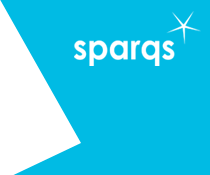In this interview we talk to Dr Natalie Watters, who is a lecturer and project manager for the online Masters in Education at the University of Glasgow. While studying for her PhD in Education in 2010-11 she was also an Associate Trainer with sparqs, through which she trained course reps around Scotland.
1. Can we start by taking you back to your days with sparqs? What attracted you to the role as an Associate Trainer?
I was initially trained by sparqs when I served as a student rep for my Masters course at the University of Glasgow in 2008. I really enjoyed the training and was impressed by the content and tone which was set by the trainer. Whilst chatting to the trainer she mentioned that sparqs were looking to recruit new trainers; I thought I’d like to give that a try. Becoming an Associate Trainer (AT) was a great experience and allowed me to work with like-minded people. sparqs gave me great opportunities to go out and about and train a new generation of reps in a mixture of college and university settings.
2. Do you remember any highlights from the course rep training sessions you delivered? Was it interesting to see the way in which reps developed (or not!) an understanding of how they could shape the quality of their learning?
There was always a spectrum of understanding and engagement amongst the new course reps. I think some of them were surprised at the level of detail the training provided and at their responsibility in taking up a course rep role. I remember having some wonderful discussions with participants, some of whom were inspiring and so enthusiastic. I used to ask my participants to draw rather than write in the first group activity; that really broke the ice and got everyone laughing. I was always happy when participants started to realise that being a course rep is about affecting change and not simply being a ‘moan repository’ for other students.
3. And what do you feel you got personally and professionally out of being an AT?
I made lifelong friends amongst the other Associate Trainers, the week we spent in training was such a great experience. I believe professionally I developed in my own approach to teaching/training. sparqs of course had guidance/lesson plans of how they wanted the sessions to be facilitated, but I was allowed to put my own spin on things and try different ideas in terms of delivery style.
4. You’re involved in the Masters in Education at the University of Glasgow, which is an online course, and we’re learning a lot from you and other colleagues at the university for our project on engaging students in the quality of Online and Distance Learning. What do you think are the challenges and opportunities for student engagement in a course which is delivered in this way?
I think there are huge challenges in developing excellent student engagement for online distance learners. With the continued advancement of online learning in the forms of blended programmes, MOOCs (Massive Open Online Courses) and fully online courses, a key driver of development is the capacity of teaching staff to design curricula and create opportunities for students to meaningfully engage with their learning. Current VLEs (Virtual Learning Environments), such as Moodle and Blackboard, provide a platform for student participation but are often not used in ways which maximise student engagement.
Building community and fostering excellent student engagement is a challenge when students are learning online and are situated, in relation to the MSc Education I’m developing, around the globe. We need to explore how staff and students can navigate the ‘transactional distance’ (the cognitive as well as the physical space) which can occur when learning online and discuss ways of achieving excellent student engagement.
5. And in turn, what do staff need in terms of being able to meet these opportunities and challenges?
Teaching and learning online and at a distance is a very different experience from face to face delivery. Academic staff need to completely change their mind set when delivering teaching and learning online. I would always suggest that they experience it for themselves either by signing up for a free MOOC or by participating in a pilot or mock course. Staff need to understand that online learners are often completing their studying and fitting it around full-time work and/or family commitments. They require the freedom to work independently whilst not feeling isolated, therefore the design and structure of the course must fulfill their needs.
There has to be opportunities for interaction and collaboration just as students would have on a face to face course (difficult when facing time zone issues). Staff must create a sense of belonging for the students even when they will never set foot on the campus. Student representation, whether it be in terms of well-worn student-staff committees or students being involved in co-creating their curriculum, is vital as it allows students to feel heard and to have agency over the direction of their learning.
.
Thanks to Natalie for being an interviewee. To suggest a future subject for interview, please contact us.
This interview is part of a series of occasional interviews on our website with student engagement practitioners – both staff and students, and from within Scotland’s university and college sector and beyond. The interviews aim to capture the different perspectives that people have on student engagement in the quality of learning.


